“Uber for X” evokes different reaction from different people – If you are an investor, you are probably cringing at the mention of it; if you are a consumer, you are probably looking a coupon code for this startup that promises you nirvana and instant gratification. If you are Kashyap Deorah or a seasoned entrepreneur, you are telling yourself to be wary of the thoughts that lure you into cheap pleasures and escapism on the pretext of instant gratification. And lastly, if you are an entrepreneur building your startup around it – you get a sparkle in your eye with the hope that Masayoshi Son sees it.
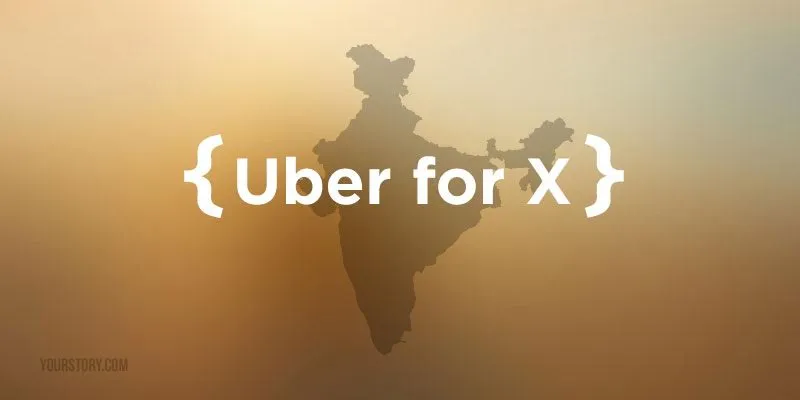
I, fortunately (or unfortunately) fall in the last category – Co-founder at Quickli. We are building a logistics network by connecting businesses to riders through our apps, opening up more possibilities for businesses and more business for riders. No? We are “Uber for Deliveries”.
If you have been following this space, you may have come across a brilliant article by Sarah Tavel on Medium – Taking the wrong lessons from Uber. The highlight of which is – The magic of Uber is that it used mobile to create a 10x better product than the incumbent (taxis), and did so at a lower price. The “and” is everything.
The world agrees with the author. I believe, irrespective of the above four categories you fall in, you must agree – The “and” is truly everything.
Does this come as a revelation to our industry? Did we focus too much on the design? Should we not have got the embroidery done on the T-shirts? But the merchant only had one captive rider; I placed 10 riders at his premises for 10x better experience. The riders love the smartphones we have given them – they can even play games during lean hours.
Did we totally miss the point? The answer is ‘No’ and I will demonstrate why –
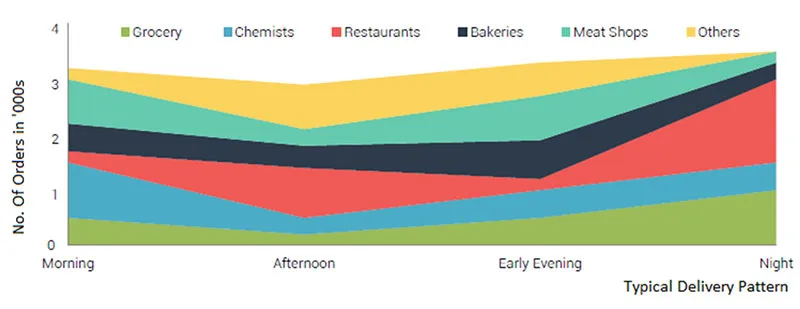
Rethinking utilisation
India has one of the world’s largest retail touchpoints. Any typical market in India has a perfectly healthy mix of restaurants, grocers, bakers, pharmacies, and others. With a captive rider, you cannot avoid the rider downtime that mirrors the peaks and troughs of your business. However, when you pool all of them, it’s a different story.
Rethinking value creation
One of the world’s biggest and most advanced pizza delivery companies has a brilliant and secret way of meeting their customer promise every time – maintain excess capacity and plan for maximum demand. Most businesses unfortunately do not have that luxury. So what do you do when all your riders are out for delivery and you have a dozen more orders waiting to be picked up? A potential app (on demand logistic focused) with dozens of riders maybe your answer.
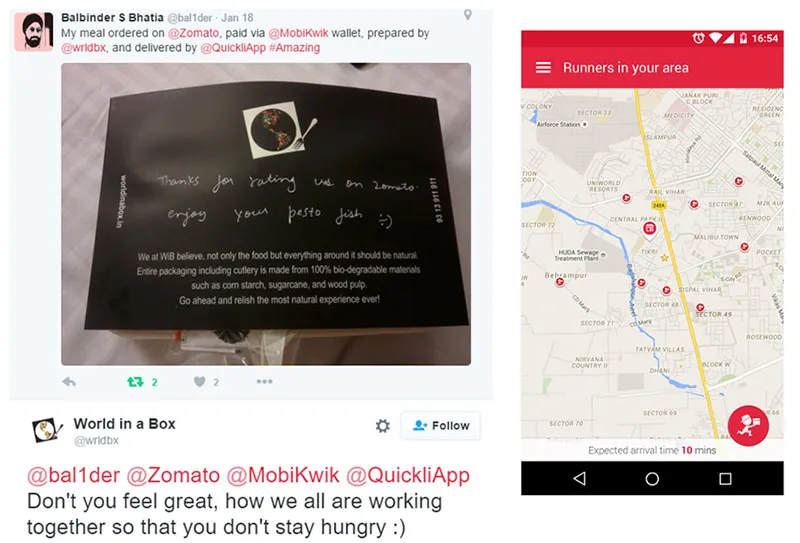
Rethinking value consumption
Unless it is a bike manufacturer or a petrol pump owner, there is no reason for a business owner to believe that there is loss of time and money every time a rider delivers an order and returns empty. Here is a delivery graph of one of the businesses we work with.
The blue dots look like secluded islands without much traffic and a ride back home would be pretty lonely.
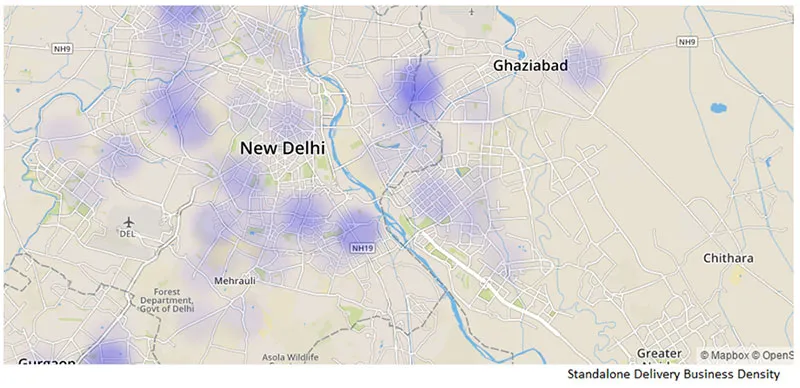
However, if few more businesses are added that we would be serving during the same time duration, then the result looks like a busy Monday morning.
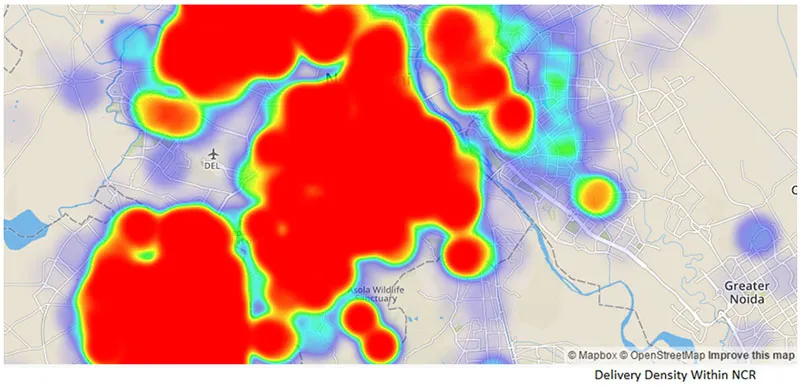
Rethink scale and lower costs
To explain this, I have used a sketch tweeted by David Sacks.
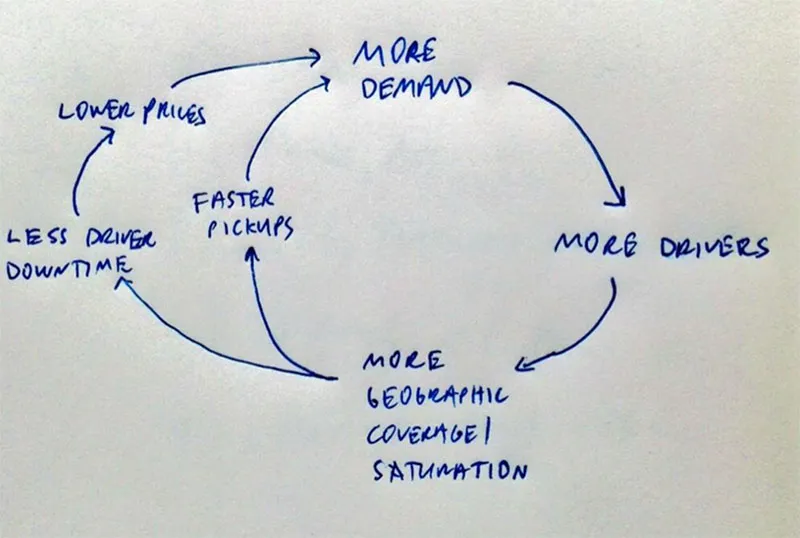
Image Credit – David Sacks
More scale will lead to higher coverage which in turn will lead to more riders. As the demand and supply increases, the empty run and idle time for rider fall and businesses get orders picked up within minutes. Thus, the platform can offer better prices to businesses with lower empty runs and idle time as well as higher availability of drivers. This, in turn, brings in more businesses into the system and the loop gets strengthened further. And that is how you create a product 10 times better than the incumbent, and do so at a lower price, whether in logistics or the next disruption that you are planning.

About the Author:
Rohan Diwan is the Cofounder of Quickli, a 500 Startups backed Hyperlocal Logistics Marketplace that bridges the availability gap between businesses owners and riders. Quickli powered delivery marketplace easily integrates with every business - small or big for their Intracity logistics. Twitter @rohandiwan







